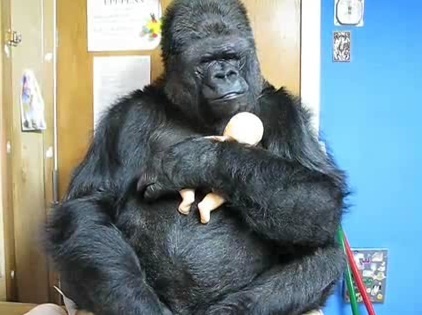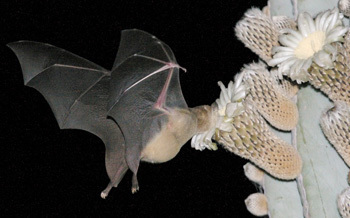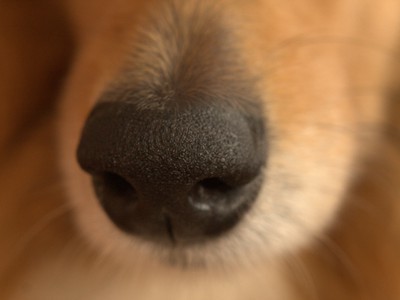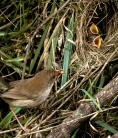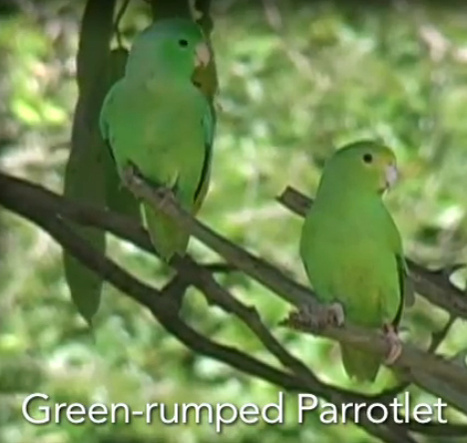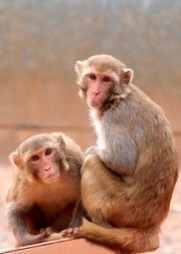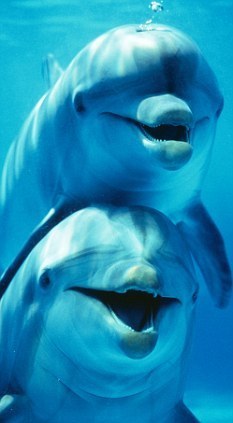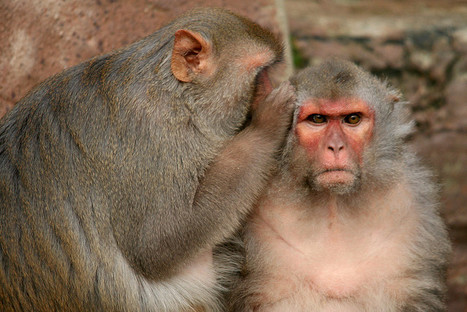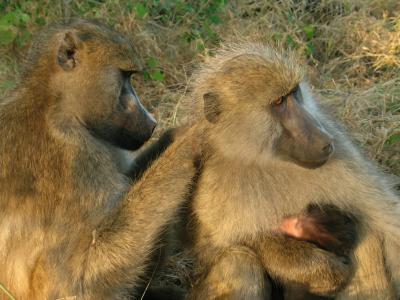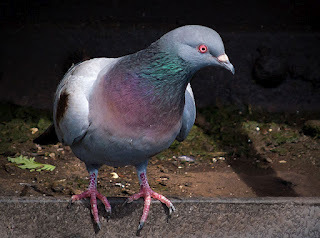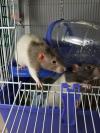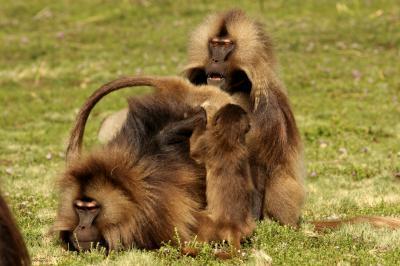In his book Cosmos, Carl Sagan wrote, “Imagination will often carry us to worlds that never were. But without it we go nowhere.”In the photo above, Koko the gorilla plays with a doll, apparently pretending to nurse it. But can non-human animals really pretend? Do they have the ability to imagine? Can animals carry themselves to worlds that never were, as human children routinely do?
Get Started for FREE
Sign up with Facebook Sign up with X
I don't have a Facebook or a X account


 Your new post is loading... Your new post is loading...
 Your new post is loading... Your new post is loading...
Surprising study of bats that pollinate cactus flowers sheds light on coevolution of plants and pollinators.
The beauty of science and technology is that things that seemed impossible in living memory are now regularly done.
A South American butterfly flapped its wings and caused a flurry of nanotechnology research to happen in Ohio.
Teaching embryos the password for food helps parents avoid having to feed imposters.
Guys who imitate Luciano Pavarotti or Justin Bieber to get the girls aren't alone. Male mice may do a similar trick, matching the pitch of other males' ultrasonic serenades.
The mice also have certain brain features, somewhat similar to humans and song-learning birds, which they may use to change their sounds, according to a new study.
"We are claiming that mice have limited versions of the brain and behavior traits for vocal learning that are found in humans for learning speech and in birds for learning song," said Duke neurobiologist Erich Jarvis, who oversaw the study. The results appear Oct. 10 in PLOS ONE and are further described in a review article in Brain and Language.
The discovery contradicts scientists' 60-year-old assumption that mice do not have vocal learning traits at all. "If we're not wrong, these findings will be a big boost to scientists studying diseases like autism and anxiety disorders," said Jarvis, who is a Howard Hughes Medical Institute investigator. "The researchers who use mouse models of the vocal communication effects of these diseases will finally know the brain system that controls the mice's vocalizations."
Jarvis acknowledged that the findings are controversial because they contradict scientists' long-held assumption about mice vocalizations....
Wild green-rumped parrotlet parents give their babies their own individual names...
New research with rhesus macaques shows that dominance rank has a major impact on gene regulation of the immune system
Earlier this month, some of the leading scientists from around the world congregated at the Hotel Du Vin in Cambridge to discuss the evidence that has amassed over the years. The experts reached a unanimous decision that animals – specifically mammals and birds – are in fact conscious beings. Through advancements in brain imaging techniques such as fMRI and EEG machines, the scientists concluded that animals show a sufficient degree of characteristics that indicate they are not as non-human as some had believed. The official decision was reached late into the night after the Francis Crick Memorial Conference on July 7th.
Organized by Philip Low, CEO of NeuroVigil and inventor of the iBrain, the group consisted of 25 of the planet’s top minds on the mind, including honorary guest Stephen Hawking. The scientists discerned the key differences in human and animal brains, mainly found in the frontal cortex, do not play a role in the phenomenon we associate with consciousness. The decision does not in any sense define what consciousness is, which will be a debate that continues to rage on. But moving forward, there are many consequences to this finding that will need to be addressed as we look to develop a more humane relationship with animals. Via ddrrnt, Mariana Soffer
gregorylent's comment,
July 28, 2012 12:44 PM
oh just fucking duh .. crikey, western scientists are sooooo retarded, apart from materiality
Reconciliation has been crafted into finely tuned rituals that help shape and maintain relationships. It has been institutionalized and sanctioned as a form of mediation. But saying “I’m sorry” seems to be an easier process for some, requiring the use of other non-verbal signs dependent on the right circumstances for others. Are all apologies the same? How do we judge the authenticity of reconciliatory actions? And why do we even need to bother?
To call his mate, a male Adélie penguin uses a tried-and-true formula: flap flippers, tilt head to sky, then cut loose with a braying screech of a love song. It’s called an ecstatic call, and among penguins, it’s contagious. |
Salmon appear to seek the magnetic signature of their home river during their spawning migration.
While it's already well-known that dolphins rank among the most intelligent creatures on the planet, new research is suggesting that they just might be one of the most magnanimous too. A team of biologists recently published a study examining dozens of fascinating cases of inter-species generosity between dolphin and human, all taking place along the shore of Australia's Tangalooma Island Resort. According to their findings, wild dolphins have been observed bearing gifts, such as dead "eels, tuna, squid, an octopus" to wading humans on 23 separate occasions. More: http://www.treehugger.com/natural-sciences/wild-dolphins-observed-gifting-fish-humans.html
Monkeys might not be known for their generosity, but when they do seem to act selflessly, a specific area in their brains keeps track of these kindnesses.
Sakis Koukouvis's insight:
The primates have an altruistic 'tally chart' that keeps track of social rewards and gifts
Humans can smell fear and disgust, and the emotions are contagious, according to a new study. The findings, published Nov. 5 in the journal Psychological Science, suggest that humans communicate via smell just like other animals.
The mental ability needed for tool use may be more widespread than we think.
Wild canines commonly form long-term attachments to their mates, partnering until death. But when resources are plentiful, monogamy is often abandoned. 
lagrimitaslililedy's curator insight,
July 24, 2013 3:37 PM
"But when resources are plentiful, monogamy is often abandoned"
From
phys
Whether human or baboon, it helps to have friends. For both species, studies have shown that robust social networks lead to better health and longer lives.
We still have a lot to learn about how animals use magnetic fields. And how does magnetoreception even work? How animals navigate over long distances is still a great mystery, but scientists are on the case.
Studies of how rats and ants rescue other members of their species do not prove that animals other than humans have empathy, according to biologists.
Being the top dog — or, in this case, the top gelada monkey — is even better if the alpha male is willing to concede at times to subordinates, according to a study by researchers from the University of Pennsylvania, the University of Michigan and Duke University. Alpha male geladas who allowed subordinate competitors into their group had a longer tenure as leader, resulting in an average of three more offspring each during their lifetimes. More on COOPERATION: http://www.scoop.it/t/science-news?tag=cooperation
No Photoshop: The uncommon Mwanza Flat-headed Agama was spotted and photographed in Kenya. |


